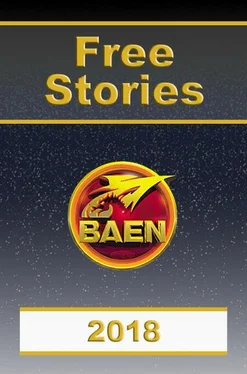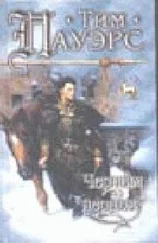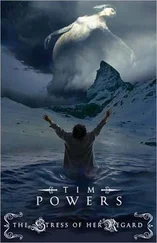You’ve been calling your daddy’s U-boat again . Zoller was frowning; but whether it was concentration or sheer perplexity Lachs couldn’t tell. The Smoking Salmon himself. How long has it been? WVREF George .
Zoller’s face was clearing of tension, his forehead smoothing out, his eyes untroubled as he turned his head to give Lachs a satisfied nod even as he wrote something down on his log. Transcribing something from his direction finder. A bearing. Was Zoller really listening to the conversation, any longer? Was it that Zoller’s English was not as good as “Charlie’s” German? It didn’t matter.
Well, I make it sixty years. Give or take. Somebody’s about three weeks late for April Fools, ain’t they? Anyway. On for net? I’ll hop onto the freq. This is Charlie, LACHS, clear .
Lachs waited; but there was nothing more. “Good work,” he said to Zoller. “Well done. Keep looking. Especially if you can pick up the same operator, by chance, we know his call sign.”
There was a heading, there, on Zoller’s log. There was at least a hint to a claimed location. Lake Superior. In North America, as Goond had claimed, shared between the United States and Canada, if Lachs remembered his geography. Equally confounding claims about when, as well as where, they were; and from a man who claimed that “Verricht Lachs” had been his father.
They had not come from sixty years ago. They had come from less than three days ago, and it had been February, and not April or May. U-818 down with all hands? Were they a ghost, then? They weren’t ghosts. They would be able to tell. Wouldn’t they? He’d eaten. He’d had some coffee. He’d used the head. He wasn’t a ghost.
But he had seen the Flying Dutchman , in October. Of 1942. And he’d studied all available—if fragmentary—information about other sightings, since then. There was consistent confirmation of Lachs’ own observation: that if that had been a ship crewed by the damned, the admittedly few crewmen he had seen working its rigging hadn’t seemed to feel themselves to be particularly diabolic.
Had it not been for the archaic presentation of the ship, for Heimsat’s horrified identification of its flag, the novelty of its appearance in an age as much of smoke and steel as sail, there would have been nothing remarkable about the ship at all. Until, of course, the ship’s sails had billowed out without a breath of wind, and the ship had turned away and disappeared.
He would call a council of war over dinner. Breakfast, lunch. Whichever meal it was. He saw three possibilities he wished to lay before his officers for consideration before proceeding.
One, he’d gone mad, and only was imagining this all; in which case no one would resist him, because they were all imaginary, and he could do as he pleased with his imaginary boat. Two, some wonder weapon had wrought such changes in the natural order that they seemed to have surfaced in fresh water sixty years and sixty days from the time they’d gone down under attack in the Arctic.
Or, three, they’d been displaced in space and time by a curse fallen on them because they’d seen the Flying Dutchman .
He would take the heading Zoller had derived and point U-818 toward the signal intercept. When he got there if it was an Allied trap he would fight. If it was anything else—if U-818 had been destroyed sixty years ago, if they were unmoored from their reality—
They would run on the surface until they found some harmless inanimate target to shoot at. And they’d find out whether ghost rounds could still blow up material objects. Perhaps they were ghosts; perhaps they were displaced in space and time, but they could still defend themselves. Because they had torpedoes. And they knew how to use them.
* * *
Ten hours of daylight, a balmy eleven degrees—practically tropical—and clear weather: another sign, if further proof was needed, that they weren’t in the Arctic any more. The preliminary bearing Zoller had taken on the radio signal intercepted yesterday called for a southwesterly course.
They’d been running on the surface for hours, seeing nothing, hearing nothing; but gradually a shoreline was coming up on the far horizon, and when they’d spotted the ship rocking ever-so-gently along like a boat whose anchorage wouldn’t be available for another few days they’d gone to periscope depth to try to figure it out.
It looked familiar.
U-818 Lachs been there for the “second happy time,” just after the declaration of war between the United States and Germany, before the U.S. Navy had begun to develop its increasingly effective U-boat hunting forces, before coastal shipping had come to realize that there was in fact a war on and that perhaps some blackout discipline was in order.
They’d been called away early for the coast of Africa, which had been fortunate as it turned out—they’d avoided the troubles—unless one factored in the fateful encounter with the Dutchman; and they’d only scored one tanker, but it had been a T2 model like the one in the periscope sights even now.
“It seems quiet enough,” Goond said dubiously, and stood away from the navigation periscope to give Ellie Vilsohn a chance. “Perhaps carrying diesel, do you think, Herr Kahloin?”
Lachs was leaning up against the chart-chest with his arms folded against his chest, one hand at beard-height with his index finger curled against his lower lip. He dropped his hand and sat down. “I’m more interested in charts,” he said. “If there’s fuel, well, all to the good. But we need more information on where we may be going.”
It was possible to navigate in foreign waters. They’d done it off the coast of Africa; there’d been very little available by way of soundings off the coast of Madagascar. At this point even a child’s map of Lake Superior would be more information than they had access to. There was the old joke about finding a coast to land at—go straight until you hit the beach, then back up five hundred meters or so—but it would be no joke to run aground in this completely unknown environment.
Goond shrugged. “It will be dark soon.” He remembered the other tanker, the one they’d found adrift off the Carolinas. There’d been damage aforeships, and the ship had been abandoned—no trace of a soul, so the lifeboats had gotten away. Unless they’d all foundered. Goond had been with the boarding party; there’d been plenty of fresh fruit and baked goods in the ship’s stores.
They’d sunk it just to be tidy, of course, because in those days they’d still had a deck gun; but that wasn’t the point so much as that he’d been on board of a T2 tanker that had certainly looked like the one they had in their sights now. “We could go have a closer look before the light goes.”
Lachs nodded. “Take us around, Rathke,” he said. “Nice and slow. Unless someone starts shouting.” Or shooting. Under other circumstances they wouldn’t risk their periscope being spotted on the surface by the light of day, but nothing they’d heard from the radio gave the slightest indication that there was a war on and that people were keeping a look-out for enemy U-boats.
All of the advertisements were for automobiles, politicians, movies—that was a comforting point of familiarity. There were still movies. And scandals. And political arguments. But no wars. Not anywhere near Lake Superior, though the Middle East was apparently a problem—still. Ever. Always.
If there was still a war in Europe, if there was a shipping war in the North Atlantic, then perhaps an old—seemingly dilapidated—T2 freighter idling on the surface of the waters without an escort or any apparent sense of urgency was a trap. Yes. But otherwise tankers didn’t fire torpedoes. Nor depth charges.
Читать дальше








![Тим Пауэрс - Последние дни. Том 2 [litres]](/books/393813/tim-pauers-poslednie-dni-tom-2-litres-thumb.webp)
![Тим Пауэрс - Последние дни. Том 1 [litres]](/books/394090/tim-pauers-poslednie-dni-tom-1-litres-thumb.webp)
![Тим Пауэрс - Последний выдох [litres]](/books/402145/tim-pauers-poslednij-vydoh-litres-thumb.webp)